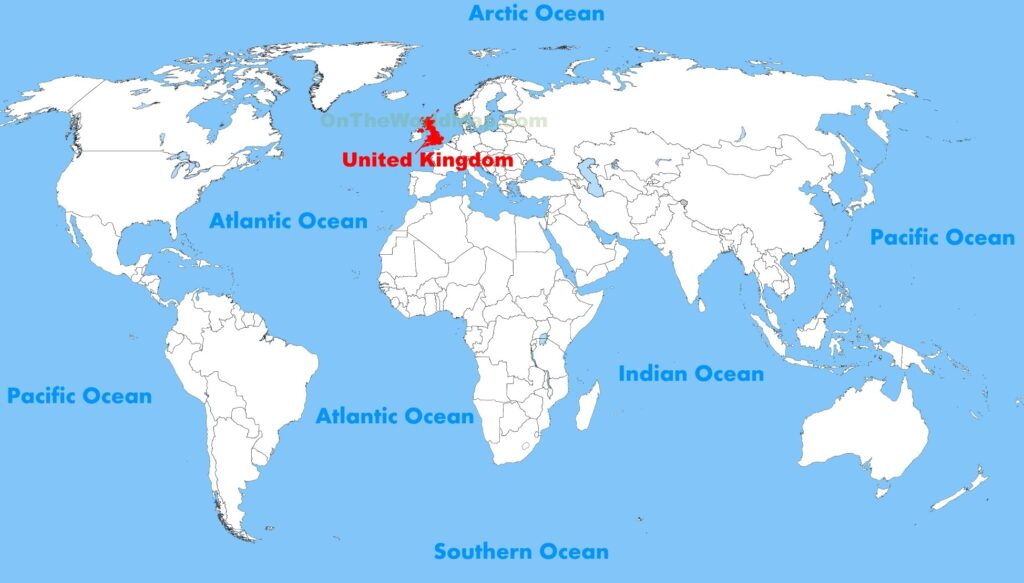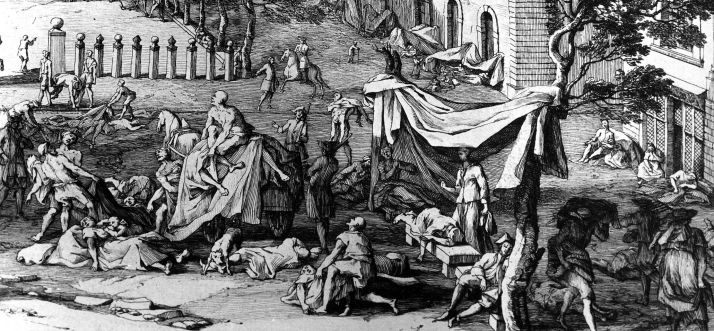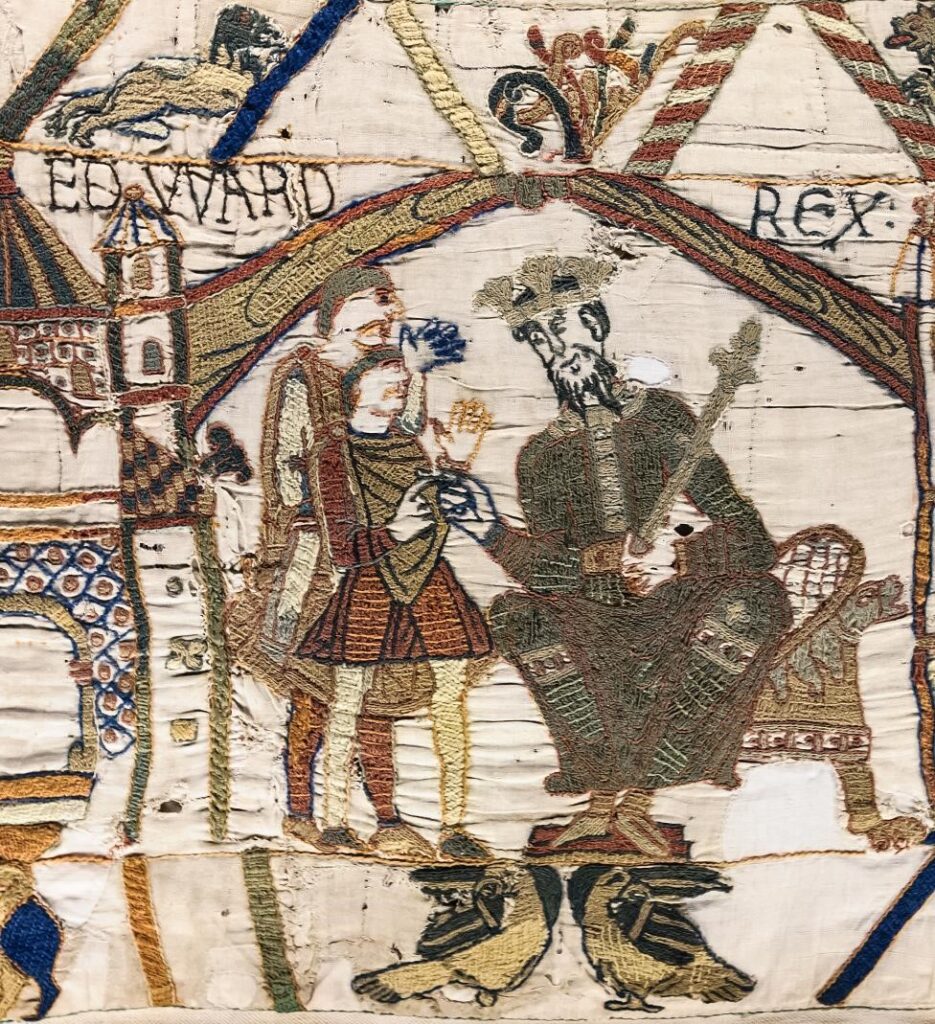England
Grades 4+
 October 14th, 1066. We are seven miles from the town of Hastings, southeast of London, England.
October 14th, 1066. We are seven miles from the town of Hastings, southeast of London, England.
Dawn has broken. Two armies face each other.
On the south side is the Norman army, 15,000 men strong. They have crossed the English Channel on 700 ships, from Normandy, in today’s France. Before them, seated tall on a magnificent stallion, is William, the Duke of Normandy. He wears knee-length chain mail armor. He is so strong that he often has drawn a bowstring that other archers cannot. A ruler of intense ambition, he has sworn he will become the king of England.
Facing him, uphill, are the Anglo-Saxons, 5,000 strong, here to defend their homeland. At their head is King Harold, who has been king of England for nine months. The Englishmen have just returned from another battle that they won. Although exhausted and outnumbered, they form a dense line, a wall of shields a half-mile long. They wait for the Normans to charge.

From the early hours of the day till nightfall, a bloody and brutal battle rages.
As their attempts to breach the English defense line fail, the Normans resort to an old tactic. By pretending to retreat, the Normans trick the English. The Saxons break ranks and pursue the fleeing Normans.
Then the Normans turn and attack full force. Caught off guard, the English are left exposed to William and his army. As the dust settles by the end of the day, the ground is strewn with bodies. Among the dead is King Harold. He was slain when an arrow pierced his right eye. The English Saxon army is defeated. England has fallen to France.
By Christmas, William is crowned as the first Norman king of England. He becomes known as William the Conqueror.
This event marks the last successful invasion of England. It changes England forever.
Most English upper class members were killed at Hastings or have fled the country. A new nobility is introduced. The Norman nobles bring their own language, French, into England’s royal courts.
England’s other classes, especially the merchants, must learn French to conduct business. But something strange occurs. Many French words are adopted into English, but the English syntax – the order of words – changes little. French, like Italian, Spanish, and Portuguese, is a Romance language. It is not the language of love and romance. Rather, it is the language of Ancient Rome. That is, it is based on Latin.
English, on the other hand, is Celtic, a Germanic language. Romance words are married to German syntax. It is like keeping a famous song’s melody – the syntax – but changing the lyrics.
As a result, English becomes a mix of French, Latin, and German.
∗
Three hundred years later, starting in 1346, another event also changes the English language.
The Black Death.
 The “Black Death,” another name for bubonic plague, is a disease from bacteria brought by fleas on rats arriving on ships from Asia. It kills 75% of anyone who contracts it. Victims have high fevers and pain, along with swelling of the lymph nodes into what look like black boils. It is so infectious that entire families die within two or three days.
The “Black Death,” another name for bubonic plague, is a disease from bacteria brought by fleas on rats arriving on ships from Asia. It kills 75% of anyone who contracts it. Victims have high fevers and pain, along with swelling of the lymph nodes into what look like black boils. It is so infectious that entire families die within two or three days.
But despite how terrible it is, bubonic plague is not the worse killer at the time.
Europeans back then experience a huge reduction in calories due to climate change. The world is going through a climate cycle that involves much colder weather than usual. Crops die. Rivers freeze that have never frozen before. People burn much more wood and coal than usual, but the cities’ poor have little access to the heat they need.
People become too weak to fight illness. Septicemia, or blood poisoning, occurs when the body is too weak to produce antibodies to fight infections from cuts or other wounds. Also spread by fleas, it kills 90% of anyone who comes down with it. Victims suffer intense fever and terrible chills and pain. Their fingers, toes, and nose turn black before they die.
Pneumonia, a disease of the lungs, runs rampant. It kills everyone it infects. The pneumonic plague that has struck is the infectious kind. A cough can kill. The disease starts with shortness of breath. By the time it ends, the lungs have collapsed.
The three plagues combine to kill 30 to 50 percent of the population of Europe – an estimated 50 to 200 million people. So many die that there often is no one to collect the bodies. They are left to rot in the streets.
Trade between cities and countries comes to a standstill as everyone tries to stay alive. People do not want to associate with others. The cultural connections between England and France soon stop.
Nor does life quickly resume when the plague ends in 1351. Whole villages are without people. Crops rot in the fields. With no one to feed them, farm animals starve to death. There is little for people to eat. Even the nobles and other rich people go hungry.
Such changes influence the English language. The dialect of English spoken in England before the Black Death was influenced by French. After the Black Death, the English language begins what is now called the Great Vowel Shift.
How the English pronounce vowels starts to change, a process that takes several hundred years.
Most scholars agree it started after the Black Death, but no one is sure why it happened. Some say the English wanted their own pronunciation when England and France enter the Hundred Years’ War (which lasted 116 years). The English do not want their words to sound like French ones.
Other experts say the change was caused by people migrating from England’s northern regions to the southeast, in search of work. Still others insist the working class caused it; they wanted to sound like nobles, who spoke French fluently.
Whatever the cause, the Great Vowel Shift permanently separates English from French. By the time the first dictionaries are written in the late 1700s, the spellings of English and French are completely different.
England Activity 1
1. Who was the King of England before William the Conqueror? 
2. What was his family name?
3. What was William’s family name?
4. Why did William’s conquest of England change the English language?
5. What three plagues made up the Black Death?
6. When did the Black Death start? When did it end?
7. What caused the plagues?
8-10. What are three possible causes of the Great Vowel Shift?
England Activity 2
There are nine -en verbs in the essay. Use the Control F key to find and list them. To find them, include a space or a period after –en.
Remember:
-
- The words must be verbs.
- They will not pass the verb tests of She ________ or They __________.